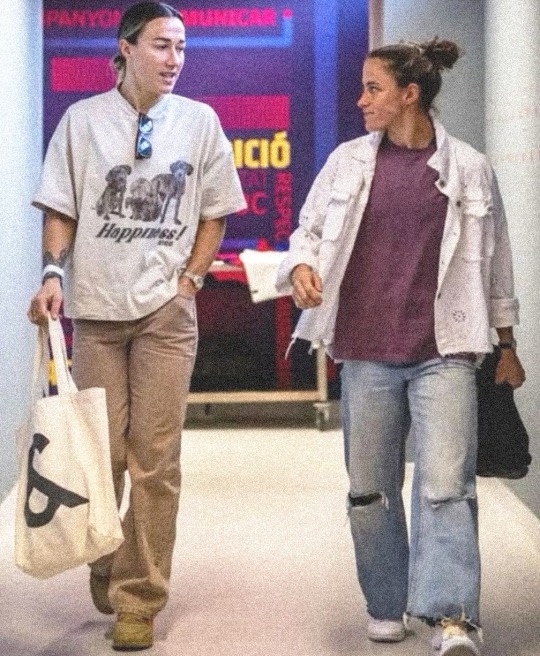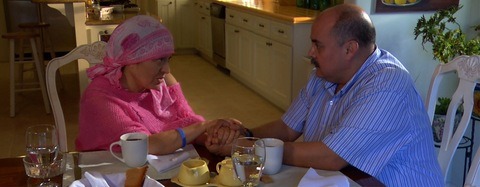#stress-es tres-tres
Explore tagged Tumblr posts
Text
Stress-es tres-tres (1968) Carlos Saura
14 notes
·
View notes
Text














Playa de Monsul - Cabo De Gata natural park - Almeria - Andalucia
#the adventures of baron munchausen#blindman#duffy#indiana jones and the last crusade#jaguar#Let the Die Be Cast: Initium#queen of swords#stress es tres tres#terry gilliam#The Gospel of John#the neverending story#war goddess#the amazons#harrison ford#sean connery#steven spielberg#george lucas#geraldine chaplin#carlos saura#Juan Luis Galiardo#Fernando Cebrián#tony anthony#james coburn#Tessie Santiago#Iván Marcos#Blanca Suárez#almeria#cabo de gata#cinema#playa de monsul
13 notes
·
View notes
Text
Stupid Hormones (LucyBronze XOnaBatlleXPutellasReader)

A/N: this was a Mapi/Ingrid/Reader one but i decided to Just switch it up after it has been sitting in my drafts for around 3 months now. Lucy never left for Chelsea in this.
Summary: you and Ona are home alone cause Lucy is away to national Camp in england. And your pregnancy hormones are all over the place. Ona is home cause she still is recovering from an injury and would start playing again soon.
It was only 11am and so far you have cried 6 Times today for no particular reason. Other than being five months pregnant and your hormones being all over the place.
"Mi amor, está bien. ¡Podemos comprar galletas nuevas! ¡Puedo ir a comprar algunas ahora!(my love, it's okay. we can just buy new cookies! I can go get some now!)" Ona offered. But you just sobbed and held onto her.
"¡No, no me dejes!(no don't leave me!)" You sobbed into her shoulder. Ona gently rubbed your back.
"¡Nunca te dejaría, amor!(i would never leave you, love!)" She told you.
"Lucy se fue.(Lucy left.)" You sobbed out dramatically. Knowing that this was unreasonable because Lucy literally went to England national camp and would return in ten days.
"Ambos le dijimos que se fuera. Además, volverá en unos días.(we both told her to go. besides she is coming back in a few days.)" Ona replied to you. Kissing your head, gently stroking your Baby Bump.
"hormonas estúpidas!(stupid hormones.)" You tell her and laugh through the tears.
"gracias por todo mi amor(thank you for everything my love)" Ona replied. You agreed to be the one to carry a Baby for the three of you cause you really wanted to experience being pregnant. Ona and Lucy weren't really interested in carrying a Baby. At least not right now, so this was the perfect solution.
"No hace falta que me lo agradezcas. Me encanta llevar un bebé para los tres.(no need to thank me. I love carrying a baby for the three of us.)" You said and cuddled closer to her.
When you were asleep Alexia came over with Olga. They got all your favorite Cookies after Ona had texted them sehen you refused to let her leave.
"¿Cómo está mi hermana?(how is my sister doing?)" Alexia asked.
"Sus hormonas le están dando un momento difícil.(her hormones are giving her a hard time.)" Ona answered.
"Suena áspera!(sounds rough)"Olga stated.
"¡Lo es! ¡Pero ella está siendo tan valiente!(it is! but she is being so brave!)" Ona told your sister and Olga. Your Sisters girlfriend.
Onas phone went off right after she walked out your sister and Olga. It was Lucy.
"hey love. how is our our girl holding Up and how is the little one? Also how are you?" Lucy asked.
"Ella está llorando mucho. Sus emociones están por todas partes. Gracias a sus hormonas.(she is crying a lot. her emotions are all over the place. thanks to her hormones.)" Ona admitted.
"Ella estaba diciendo que la dejaste. No te preocupes, ahora está bien. No puede evitarlo.(she was saying you left her. don't worry it's fine now. she can't help it.)" Ona added.
"i will facetime her tonight." Lucy answered and frowned softly.
"Sin embargo, la bebé está bien.(the baby is fine though.)" Ona let her know.
"that's good! but i hate that she has to Go through this Rollercoaster of emotions!" Lucy answered. You shuffled out of the bedroom.
"is that Lucy?" You asked.
"¡Sí lo es, amor! (yes it is, love!) " Ona replied. You Walk over to Ona and put the Phone on speaker.
"hello Love. I miss you! But i am so proud of you!" You let her know.
"i miss you too! And i am very proud of you as well!" Lucy stated. Offering you a soft smile.
"god i love you two and bean so much!"you started crying again.
"oh no, gorgeous. Please stop crying. We love you so much as well." Lucy said, she felt quite helpless cause she was so far away from you to hug you. Thankfully Ona hugged you for her.
"Baby, Lucia is right. We Love you so very much but please stop crying. Stress isn't good for you." She told you. You breathed in and out slowly.
"look at my Girls!" Lucy replied, relieved that Ona managed to calm you down.
Lucy stayed in facetime until you were asleep again. Ona was holding you. You really were lucky to have two amazing girlfriends that cared about you so damn much.
#woso x reader#woso fic#lucy bronze x ona batlle x putellas reader#ona batlle x reader#lucy bronze x reader#alexia putellas x putellas reader
178 notes
·
View notes
Note
Just gonna say it, but Buddha would hands down be the best babysitter for the PPG!Reader’s because he can handle all THREE of them together when babysitting
The other Pantheons couldn’t even handle just ONE of the little girls by herself, what the hell IS Buddha, a wizard?! (Yes, and he’s a fresh wizard because he got STYLE-)
Bubbles is already easy enough to care for since she just wants to draw, dance, sing, pet animals and play tea parties (Only Buddha brings in real tea and snacks for the tea party and lets her play/style his hair)
Buddha would use tiny reverse psychology on Blossom (But only to help her! And he does this only once!) mainly about why it’s important for the human body to get sleep right? Then she should know just how important it is for her to also take breaks and just relax (Buddha just wants Blossom to enjoy being a kid by not stressing over every little detail, as she should be able to enjoy playing and feel happy)
Buddha definitely likes Buttercup’s energy, mainly after learning she chased Loki down to get back at him for a prank (Though he’ll also teach her about finding inner peace and that she doesn’t need to use violence to solve every answer, doesn’t mean it’s not funny though, especially when she beats up gods)
Buddha becomes the most hated God ever by the other Gods because he can make the PPG!Reader’s do what he ‘wants’ (He just wants them to enjoy their adolescence to the fullest) and ‘what do you mean blossom didn’t destroy your pride with many ideas about how you can do your job better or that buttercup didn’t constantly break or destroy anything or fight anyone?!?’
💖 Anon
Buddha is definitely the envy of all pantheons. What do you mean he can handle all three girls and come out alive and whole?
Buddha doesn't really see much science in his method of caring for the girls; he simply adapts to each one. He recognizes that they are different individuals, with different personalities, and therefore needs to apply different methods.
Bubbles is the easiest to care for; everyone knows that, but not everyone has the patience to deal with her. No one genuinely understands how Buddha can "lower himself" to having a little girl braid his hair while she happily singing. When what the gods don't understand is that this is the very tactic used to handle Bubbles: to give her what she wants because she's the most sensitive.
Blossom is a bit more difficult. She wants to help organize the Buddhist pantheon as much as possible, and while help is always welcome, no kindergartener should have to worry about such things. So Buddha applies a technique that 1. helps prevent Blossom from overexerting herself and 2. doesn't discourage her: reverse psychology, making her see that humans need rest too (or that she can't control absolutely everything). Blossom is considerably less hard on herself, which is an achievement in Buddha's book.
Buddha might like Buttercup's energy, and he definitely laughed A LOT when she chased Loki through several pantheons just because of a prank he played on her, but he would also greatly appreciate his pantheon being whole at the end of the day, so he tries to teach Buttercup other ways to vent her anger (if not fighting, then probably some kind of sport or, as anon said, meditation).
Zeus feels even more humiliated when Buddha, of all gods, can "control" girls and he can't, and tries to convince him to give him "the secret" to do so. But Buddha just shrugs. After all, he's just doing what he has to do, right?
---------------
(ESPAÑOL)
Definitivamente Buda es la envidia de todos los panteones ¿que quieres decir con que el puede manejar a las TRES CHICAS y salir vivo y entero?
Buda realmente no le ve mucha ciencia a su metodo de cuidado de las niñas, el simplemente se adapta a cada una, el reconoce que son individuos diferentes, con personalidades diferentes y por lo tanto, necesita aplicar metodos diferentes.
Burbuja es la mas facil de cuidar, eso lo saben todos, pero no todos tienen la paciencia para lidiar con ella, genuinamente nadie entiende como Buda puede "rebajarse" a que una niña le este trenzando el pelo mientras canta felizmente. cuando lo que los dioses no entienden es que esa es la tactica en si para manejar a Burbuja, darle lo que quiere porque es la mas sensible.
Bombon es un poco mas dificil, ella quiere ayudar a organizar lo mas posible el panteon budista, y si bien la ayuda siempre es bienvenida, ninguna niña de kinder deberia preocuparse por esas cosas, por lo que Buda aplica una tecnica que 1- ayuda a evitar que Bombon se sobreexplote sola y 2- no la desaliente: psicologia inversa, haciendole ver que los humanos tambien necesitan descanso (o que no puede controlar absolutamente todo), Bombon es considerablemente menos dura consigo misma, lo cual es un logro en el libro de Buda.
Buda podra gustarle la energia de Bellota, y definitivamente se rio MUCHO cuando ella persiguio a Loki por varios panteones solo por una broma que el le hizo, pero tambien apreciaria bastante que su panteon este entero al final del dia, por lo que trata de enseñarle otros medios para que Bellota descargue su enojo (si no es pelear, probablemente sea algun tipo de deporte o, como dijo anon, meditacion).
Zeus se siente aun mas humillado cuando Buda de todos los dioses puede "controlar" a las chicas y el no, y trata de convencerlo de darle "el secreto" para hacerlo. pero Buda solo se encoje de hombros, despues de todo, solo hace lo que debe hacer ¿no?

#headcanons#fem reader#español#spanish#shuumatsu no valkyrie#record of ragnarok#ppf!reader#record of ragnarok x reader#record of ragnorak#shuumatsu no walkure#shuumatsu no valkirye#shuumatsu no valkirye x reader#platonic reader#ror buda#snv buda#ror#snv
40 notes
·
View notes
Text
Teacher’s Pet
Part 4
Esteban Kukurickza x reader

Summary: After a few months of starting your literature course you seem to find it harder with time to ignore your professor, little did you know you were driving him crazy as well.
Warnings: nothing much just some fluff but not an appropriate teacher student relationship
Masterlist
It had been a few weeks since you and Esteban had basically spent the whole day together and since then you both were more close, that should be the way to describe it, he would bring you breakfast in the mornings and you would bring him coffee and a treat, he would send you emails to make sure you were okay with the lessons and that you weren’t stressed in any way
He would also make sure you were okay at work offering to bring you lunch on your breaks which you accepted gratefully since you were tired of the small breads from the coffee shop, your relationship had progressed from the beginning and it made you happy.
“Buenos Dias” you smiled putting the coffee cup down on his desk before taking a sip of your own “Buenos dias amor” amor, a new nickname that you adored “que haces?” You asked leaning on the edge of his desk, “nomas unos papeles” he sighed then he gave you a plastic bag, breakfast “es un burrito con huevo, tocino, y queso” he said as he flipped through some of the papers and you hummed peeling down half of the foil and taking a bite
“Y esto?” You pulled up a yellow folder and he carefully took it from your hands throwing it in a drawer “nada amor nada importante” he said a small smile on his lips and you gave him a pointed look “mentiroso” you mumbled taking a bite of the burrito, he laughed “yo mentiroso?” He asked amused making you nod as you sipped the coffee
He pinched your thigh playfully making you giggle as you swatted his hand away taking another bite of your breakfast “comiste bien a noche?” He asked and you nodded as you couldn’t answer with your mouth full and he looked at you in awe “que?” You asked a small embarrassed smile on your lips “te ves tan tierna amor” he said making you roll your eyes playfully
“Bueno ya me voy a senatar” you stood up and crumbled the foil throwing it out and taking your coffee with you “bueno nena” he watched as you went to take your usual seat.
After class you had gotten your stuff waiting for most of the class to clear out, walking up to Esteban you carefully grabbed his arm “voy al trabajo” you let him know and he nodded “te llevo comida” he said and you nodded “bueno” you smiled leaving and making your way to the bus to get to work
Once clocked in there was no such thing as a break or slowing down, you were at the register or serving people their orders.
“Oye nena, el novio” Nereyda your coworker said as she stood at the doorway to the break room “no es mi novio” you mumbled walking past her before making your way around the counter “Hola” you smiled standing in front of him “hola amor” he held a plastic bag with food in it “ven vamos” you lead him to the back where the break room was, your boss was allowing you to do this since you were the only one who ran the coffee shop the right way
Therefor you were allowed this certain special treatment.
“Cansada?” He saw how your eyes were droopy and you chewed slowly as if you were uninterested in the food “un poco” you took another bite of your food “aye pobrecita la niña” he teased as you smiled shaking your head “y a que hora sales?” He asked “en tres horas” you said taking another bite of food
“Te llevo a casa” he didn’t ask he just told you and you learned that whatever he says goes because he is very insistent "Y como esta you gatita?" you asked about the cat he had told you about
the little kitten he adored and you couldn't help but smile every time he mentioned her "Esta bien, en casa dormida como siempre" he smiled at the thought "Yo la quiero conocer" you said and he smiled "Pronto la vas a conocer, te va amar" he assured you making you smile as you sighed “aye no sabes el sueno que tengo” you sighed
“Y no puedes salir temprano?” He asked you shook your head “luego no me pagan bien” you said and he sighed his fingers making their way through your hair in a soothing way making you close your eyes for a moment “bueno cuando te recojo puedes dormir en el carro” he said and you nodded eyes still closed
But it did not last since your phone let out a loud alarm making you jump slightly and you realized your lunch was pretty much over “ya tengo que regresar” you groaned and he frowned a little “esta bien amor, te recojo entonces” you nodded and he helped you pick up
After he left you were back to work, it seemed like time went slow when you worked, you weren’t complaining too much since it was more pay but still it was draining nonetheless
Once your long shift was actually over you had picked up and tidied up the shop before pulling off your apron and hanging it up, you grabbed your stuff and the small paper bag which held a chocolate croissant that you couldn’t bare to throw away and locked up
Esteban was already in front of the shop waiting and he hopped out of the car ready to open the door for you which you thanked him for with a smile, a rule he had given you which was never to open your own door
He got back in and the car was so warm and the seat was comfortable for someone who was up on their feet for 9 hours “quieres algo?” He asked and you shook your head “no gracias, quiero ir a casa” you opened the bag ripping a piece of the croissant, after having a bite you ripped off another piece holding it in front of Esteban’s lips as he opened his mouth allowing you to pop it in
“Esta bueno?” You asked he nodded “muy bueno” he confirmed. The drive home wasn’t too far so you both didn’t always get much time together but some time was still treasured time. Esteban got off the car once more opening the door for you, you sighed standing in front of him, pretty close too
“Gracias por traier me a casa” you smiled and he looked at you in an admiring way a smile on his lips as he sighed “de nada amor, recuerda lo que sea para mi alumna favorita” you chuckled your cheeks tinting red and you looked down at your shoes “mírame” he said in almost a slight demanding yet calm and soft tone, you looked up but not without feeling that tingling warmth in your belly
“Cuídate amor, por favor y duerme bien, vale?” You could not form words right away so you nodded “vale” you finally let out softly and he nodded his arms wrapped around you and you didn’t expect it, but you took it and let your arms wrap around his torso and what you both didn’t realize was that you inhaled one another’s scent, he smelled of cologne, mint gum, and cigarettes and you smelled like the comforting smell of coffee and your perfume
Finally you both pulled away after a moment and his fingers brushed the loose strands of hair away from your face, “bueno amor, ve y descansa te veo mañana” you nodded “buenas noches” you said barley above a whisper before you began to walk away and make your way inside the building, you saw him get into his car once he saw you were inside and you got into the elevator your heart pounding
You both never were that physically close and it was the best feeling ever but it was also the most nerve wrecking feeling as well, you set your things down once you entered your apartment and got to thinking about it all, your head was racing and your heart was still beating fast. Meanwhile Esteban was as happy as can be, he’s sure he can make you his, he knows it.
A/n: hope you all enjoyed!!!! I plan on making things more interesting just bare with me haha but also whoever reads this thank you sm and I hope you all love this fic just as much as I love writing it ❤️❤️❤️
Also likes, reblogs, and comments are very much appreciated but don’t feel forced my loves just as long as you read and enjoy that is suffice for me, I love you all sm💗💗💗 also if you want to be tagged let me know !!!
Taglist: @madame-fear @castawaycherry @theoslove @catiwinky
#lsdln cast#enzo vogrincic#esteban kukuriczka#francisco romero#matias recalt#juani caruso#esteban kukuriczka x reader
75 notes
·
View notes
Text
Adjective Placement in Spanish Overview
With regards to adjective placement, I know I linked that bigger post I made about what the placement of adjectives generally mean but I'll give a very brief overview and if anyone has any specific questions please let me know.
IN GENERAL for like 70-ish percent of the time, adjectives go behind the noun in Spanish. These are your basic everyday adjectives that just describe nouns; el gato negro "the black cat", la mujer alta "the tall woman", los datos importantes "the important data", las tormentas peligrosas "the dangerous storms"
And again, IN GENERAL, if an adjective precedes the noun it is as if you bolded or italicized the adjective. It makes the adjective really stand out because of how out of the ordinary it is. It's very commonly used in poetry, writing, or for hyperbole:
La cruel realidad = The cruel reality La fea verdad = The ugly truth Mis sinceras disculpas = My sincere apologies Mi más sentido pésame = My most heartfelt condolences/regrets
If you were looking at it more poetically you could think of "blue sky"... el cielo azul "the blue sky" is everyday Spanish, very typical. Saying el azul cielo "the blue sky" draws the eye to azul making it seem like "blue" is the most important or noteworthy thing about it
You typically see this kind of construction in everyday Spanish with expressions of gratitude, grief, horror, deep love, or any very strong emotions or when you're trying to make an impact
(More below)
-
Note: This will impact certain aspects of grammar, such as the nouns that are actually feminine but take a general masculine article such as el agua, el arma, el hada, el hambre, el águila etc.
As an example:
El hada madrina = Fairy Godmother La buena hada = The good fairy
To further explain this rule - el hada is written with a masculine article. This is because it has its vocal stress on the first syllable and begins with A- or HA- [where H is silent]; and treating it as feminine would cause the sounds to run together, so the el adds a kind of phonetic break to preserve the sound; but in plural it will be las hadas "fairies/fey"
A word like this would still retain its normal functions as a feminine word, thus el agua bendita "holy water", el águila calva "bald eagle", el ave rapaz "bird of prey", and then in this case el hada madrina "fairy godmother"
By adding a separate word in front, you interrupt that la + A/HA construction and create a hiatus in the sounds already... so you can then treat it like a normal feminine noun, la buena hada "the good fairy"
You might also see this with grande "big" and its other form gran "great/large", el águila grande "the big eagle" vs. la gran águila "the great eagle"
-
Moving aside from the normal grammar, we now enter the exceptions. First - determiners.
There are a handful of adjectives that are known as determiners which come before the noun and they provide an important function in communicating things like number, possession, and location
The most common determiners include:
Definite articles [el, la, los, las]
Indefinite articles [un, una, unos, unas]
Possessives [mi, tu, su, nuestro/a, vuestro/a]
Demonstratives [este/esta, ese/esa/, aquel/aquella]
Interrogatives [qué, cuál/cuáles, cuánto/a] (Also work as exclamatory determiners which just means ¡! instead of ¿?)
Cardinal numbers [uno, dos, tres, cuatro, cinco etc]
Ordinal numbers [primer/primera, segundo/a, tercer/tercera, cuarto/a, quinto/a, etc]
There are also a few determiners of quantity such as mucho/a "a lot/many/much", todo/a "all/every", cada "each", vario/a "various/many", poco/a "few/less", tal "such", tan "so much" / tanto/a "so many", algún/alguna and ningún/ninguna etc.
And it will generally apply to más and menos "more" and "less", and sometimes mejor/peor "better/worse"
-
Note: With possessives is that there are two forms depending on adjective placement:
mi amigo/a = my friend mis amigos / amigas = my friends un amigo mío = a friend of mine una amiga mía = a friend of mine [f] unos amigos míos = a few friends of mine unas amigas mías = a few friends [f] of mine
All the pronouns have their own version of this possessive pattern
mi(s) and mío/a, tu(s) and tuyo/a, su(s) and suyo/a, and then nuestro/a and vuestro/a are the same but the adjective placement is different
As an example - nuestro país "our country" vs. el país nuestro "the country of ours", or nuestros familiares "our family members" vs. unos familiares nuestros "some family members of ours"
A common religious example - Nuestra Señora "Our Lady" and then el padrenuestro "the Our Father prayer"
The possessives that come after the noun are usually translated as "of mine/yours/his/hers/ours" etc.
You can also see a few determiners/adjectives in different places in a phrase like - un viejo amigo mío "an old friend of mine" vs. mi viejo amigo "my old friend"
-
As mentioned in the very beginning there are a handful of exceptions
Most notably:
viejo/a = old / elderly
antiguo/a = ancient, old / antique, old
mismo/a = same / self
gran = great, grand grande = large
And includes propio/a "own / appropriate", as well as bueno/a "good" or malo/a "bad". I discussed a lot of these in more depth in the previous posts and in the one linked above
In many cases the exact meaning is different, even if it's slight - such as el hotel grande "the big hotel" vs. el Gran Hotel "the Grand Hotel"
bueno/a and malo/a are generally either "good" and "kind", or "bad" and "unkind", though the meanings can kind of blur together... as something like la buena hada "the good fairy" isn't so far off from el hada buena "the nice fairy"
When places before though bueno/a turns to buen + masculine, and malo/a turns to mal + masculine
As an example - un buen augurio "good omen", un mal presagio "a bad omen/portent"
.....but in feminine it looks like you'd expect: buena suerte "good luck" vs. mala suerte
Similarly, and one I didn't include the first time is cualquier/cualquiera
cualquier persona = any person una persona cualquiera = an ordinary person
cualquier in front - regardless of gender - means "any", literally "whichever"
cualquiera in back comes out as "ordinary" or colloquially "any old" [such as un beso cualquiera "an ordinary kiss" / "any old kiss"], or in the case of people it could be like "a person of dubious/unknown background" sort of like "they could be anyone"...
-
And then you run into what I would consider "collocations" which is another word for a set noun or expression
There are some words/expressions that have the adjective in a specific place and you can't really change it or it sounds weird, so you sort of have to learn them as specific units to remember:
las bellas artes = fine arts [lit. "beautiful arts"]
(de) mala muerte = "backwater", "poor / middle of nowhere", a place of ill repute or somewhere very remote or inconsequential [lit. "of a bad death"]
a corto plazo = short-term
a largo plazo = long-term
(en) alta mar = (on) the high seas
alta calidad = high quality
baja calidad = low quality
Blancanieves = Snow White (the character/fairlytale)
la mala hierba, las malas hierbas = weeds [lit. "bad grasses"; plants that grow without you wanting them to or that grow in bad places etc]
los bajos fondos = criminal underworld [lit. "the low depths"]
el más allá = "the great beyond", "the afterlife" [lit. "the more over there/beyond"]
buen/mal augurio = good/bad omen buen/mal presagio = good/bad omen
buena/mala suerte = good/bad luck
...Also includes all the greetings like buen día / buenos días or buenas noches etc. they're all considered set phrases
There are also many collocations that use adjectives in their normal place that also can't be separated such as los frutos secos "nuts", or el vino tinto/banco "red/white wine" etc.
A collocation just means that they are treating multiple words as set phrases or a singular unit
And again, some history/geographical terms will have these as well:
la Gran Muralla China = Great Wall of China
la Primera Guerra Mundial = First World War
la Segunda Guerra Mundial = Second World War
el Sacro Imperio Romano = Holy Roman Empire
la Antigua Grecia = Ancient Greece
el Antiguo Egipto = Ancient Egypt (el) Alto Egipto = Upper Egypt (el) Bajo Egipto = Lower Egypt
Nueva York = New York
Nueva Zelanda = New Zealand
Nuevo México = New Mexico
Nueva Escocia = Nova Scotia [lit. "New Scotland"]
la Gran Manzana = the Big Apple [aka "New York"]
Buenos Aires
There are many such terms
#spanish#langblr#spanish language#learning spanish#spanish grammar#learn spanish#long post#spanish vocabulary#vocabulario
65 notes
·
View notes
Text

"NUI WORLD" (LISTA DE CAPÍTULOS / TEMPORADA 01)
AUTORA: SHIZUME SHADE
01. Bienvenidos al mundo de K-Nuis (Grupal) 02. Amistad peluchera (Trio Homra, Anna y Reisi) 03. Cumple del Rey León (Grupal) 04. Reunión de Navidad (Grupal) 05. Háblame universo (Shiro/Kuro) 06. Se alquila (Mikoto) 07. Ventaja de estar soltero (Zenjo) 08. ¿Dónde está mi dinero? (Totsuka) 09. Media naranja (Izumo/Andy/Totsuka) 10. Si quieres flores... (Kusanagi) 11. Shampoo VS Lavaplatos (Rikio) 12. Beneficios del agua (MikoRei) 13. Una cepillada (Seri/Izumo) 14. Alarma molesta (Shiro/Kuro) 15. La maquinita Chu-Chu (Mikoto/Reisi/Totsuka) 16. Respóndeme ya (SaruMi) 17. Necesito un aumento (Saru/Seri/Reisi) 18. Vendo (Andy) 19. Siempre hermoso (Yukari) 20. ¿Tienes hambre? (Yata/Rikio) 21. Rumores (Mikoto) 22. Nivel de stress (MikoRei/Zenjo) 23. Alegría de la vida (Totsuka/Izumo) 24. ¿Con qué trabajo? (Saru/Reisi/Seri) 25. Imposible hacer dieta (Rikio) 26. Busco acompañante (Yata/Rikio) 27. Etiquétame (Totsuka) 28. La herencia (Iwa/Sukuna) 29. El mejor guerrero (Izumo/Seri) 30. Tomando agua (Zenjo) 31. Cásate con... (Shiro/Kuro) 32. Es hambre (Rikio/Totsuka) 33. Cenicienta (Kuro) 34. Escucha atentamente (Yukari/Shiro/Kuro) 35. Ser de luz (Reisi/Totsuka/Mikoto) 36. Promoción (Shiro/Kuro) 37. Dos esposas (Totsuka/MikoRei) 38. Chisme (Mikoto/Totsuka/Reisi) 39. Quemando calorías (MikoRei) 40. Catador de princesas (Izumo/Seri) 41. Oración del borracho (Iwa/Grupal) 42. Sabias que... (Izumo/Seri) 43. Pesadilla (Iwa/Izumo) 44. Dos menos cinco (Izumo/Seri) 45. Burrito cervecero (Iwa/Grupal) 46. ¿Qué edad tienes? (Iwa/Totsuka) 47. Se busca (Totsuka/Mikoto/Iwa) 48. Sugar Baby (Totsuka/Iwa) 49. Tafirol (Andy) 50. Molestando (MikoRei) 51. El mujeriego (Izumo/Seri) 52. Promoción engañosa (Rikio) 53. Una nube (Mikoto) 54. No está en mi menú (Rikio/Yata) 55. ¿Quién eres? (Reisi) 56. ¿Para dónde vamos? (Izumo/Seri) 57. Recibo de luz (Trio Homra) 58. Todos contentos (MikoRei) 59. El chisme es vida (Izumo) 60. ¿Cómo conseguir pareja? (Yata) 61. Con estilo (Totsuka/Anna) 62. Estilo coquete (Totsuka) 63. Divorcio (Izumo) 64. De mugre nadie muere (Totsuka) 65. ¿Qué haces? (Totsuka/Mikoto) 66. Tres cosas en la vida (Trio Homra/Reisi) 67. Inmortal (MikoRei) 68. Mi corazón (Izumo/Seri) 69. Peso interior (MikoRei) 70. Es injusto (Seri) 71. Golpeado (Trio Homra) 72. Tenemos un problema (Izumo/Seri) 73. Inyección (MikoRei) 74. Engaño (MikoRei/Grupal) 75. Buen gusto (Yukari) 76. Tres fans (MikoRei) 77. Oiga, Doctor (Izumo/Seri) 78. Abrazos (Totsuka) 79. ¿Qué somos? (Rikio/Grupal) 80. Soledad (Reisi) 81. Maldita panza (Rikio) 82. Valora a quien cocina bien (Shiro/Kuro) 83. Querido Dios (SaruMi) 84. Conciencia tranquila (Izumo) 85. Papacito (Izumo/Seri) 86. Nadie te obliga (Izumo/Seri) 87. Mate con calor (Seri/Totsuka) 88. Migajas (Kuro/Neko) 89. Mosquito (MikoRei) 90. ¡Oh, no! (MikoRei) 91. Adicto a Netflix (Totsuka) 92. Calor insoportable (Grupal) 93. Amarre (Shiro/Neko) 94. Nuevo amor (Seri/Izumo/Zenjo) 95. Cómetelo (Seri/Izumo) 96. Comiendo lo ajeno (Seri/Izumo/Zenjo) 97. Quédate conmigo (Zenjo/Seri) 98. Dale la razón (Izumo/Seri) 99. Mi vida (Izumo/Seri) 100. Bluetooth (MikoRei/Totsuka)
2 notes
·
View notes
Note
Just wanna add some more stuff to Mikoto Kayano’s description as I don’t feel it did him justice (is this a tournament or something?). And apologies in advance for this being a bit too long
To be clear, Mido doesn’t actually exist and is a fanon character originating from an older theory. Currently we only know of Mikoto and John in the system. It’s also very unclear who is the actual killer but I’ll elaborate on that more. And in Milgram everyone’s a killer so he’s not the only case here.
I really love Mikoto and John and their story so much.
Mikoto is the host alter and the one considered as the prisoner 009. He’s a people pleaser who obsessed with being normal and acceptable to people. He doesn’t inherently understand social concepts and relationships and tries to force himself into such. His whole social attitude is him deliberately acting that way so people can accept him, such as he doesn’t give people nicknames just because he wants to he it’s that he believes it to be a step in order to interact with people well. He’d do anything to please other people even if it makes him uncomfortable. And this habit is breaking him down on the inside along with being stuck in an abusive job.
His obsession with being normal makes him hate John which is really sad. He feels that having DID would make him weird and crazy and completely erase any sort of efforts he made to be normal and socially acceptable and have him be ostracised by everyone, which is sadly the truth in this current world. Because of this he’s scared of John and projects all his sufferings onto him, that he’s deliberately trying to ruin his life and do all these horrible things just for the sake of it. He even blamed John for attacking Mahiru even though it’s extremely obvious that it was Kotoko who did it. Mikoto saw her as a friend even though she really wasn’t and doesn’t want to believe that she did it so he blamed it on John.
I think Mikoto might’ve actually known he was a system for a while as lots of the lyrics in his first trial song, MeMe, seem to imply this. He wants to know why John is like this and is scared of him. And he’s lying to himself and desperately trying to convince himself that it’s not true. Even acting clueless when Es bought it up despite having attempted to talk to John beforehand.
Now for John, he is the protector alter and isn’t considered to be the prisoner. I absolutely love John so much. He’s obsessed with protecting Mikoto to the point he’s ruining his life, just like Mikoto’s obsession with being normal. He’s extremely paranoid of other people, and believes them all to be out to hurt Mikoto. Because of this, he lashed out and acts violently around them to make himself seem more threatening as for them to not go near Mikoto. This is in direct contrast with Mikoto’s behaviour of wanting to be friends with everyone which John is trying to stop as he’s scared for his safety under the belief that other people are dangerous. Even though he’s trying to protect Mikoto from this he’s actually making things worse for him as this is heavily stressing out Mikoto who’s biggest fear is social rejection and could stop someone reaching out to help him. And John knows this. He’s questioning if he’s truly Mikoto’s saviour and has started to believe that he’s ruined his life, for if only he was never born. But his paranoid mindset is inherently rooted into him so he can’t stop behaving this way.
John’s entire identity revolves around him being Mikoto’s protector, so for this it feels to him as his entire duty in life he had failed. His entire life is focused on Mikoto and he believes he can’t be his own person with hopes and dreams because that’d be getting in the way. He also demonised his DID and believes he can’t be a proper person because of that, and believes his condition is what’s making him violent even though it’s truly not, and just has a strong sense of fight or flight.
For his whole life John has never been treated as a person and never treated himself as such, so when in his second trial voice drama, Neoplasm, when Es wasn’t immediately scared of him when John fronted and started threatening Es, he backed down. This was the first time he wasn’t treated as a monster and because of that he dropped his persona and started to reveal his true self. John is a more stoic and rational person and was confused when Es actually accepted him instead of fearing him. It definitely seems he’s been trying to make an effort not to get angry and violet on an impulse as when he got upset and started yelling at Es, he calmed down and started breathing, and tried to talk in a more calm matter. But because of this he said how he wished he had stayed a monster.
And about the whole murder situation. John desperately tries to convince Es that he’s the killer, claiming he just killed a bunch of random people who annoyed him although this statement is very contradictory. When Es started to get suspicious of his statement John immediately doubled down and tried to convince them that Mikoto is weak and innocent and could never hurt anyone and was basically yelling at Es that Mikoto is completely innocent and that he is the murderer.
Even though the story deliberately makes it unclear who did it this behaviour seems to me as John trying to take the blame for Mikoto, as he wouldn’t want anything bad to happen to him because of that. It’s just a theory and it’s a long one but I believe that Mikoto is the killer, and the trauma from the incident along with his denial coping mechanisms lead him to repress the memory. And in the first trial when Es bought up the idea that he may have repressed the memory he started having a panic attack which caused John to switch in.
I really love how Milgram is treating DID with respect in Mikoto’s story and how the murder wasn’t because of his condition, but the result of the situation he was in and all the trauma he was going through, a murder which anyone could commit. There’s also a time where it was implied that they were co conscious in the second trial interrogation questions where at one time the handwriting started changing a lot and becoming more shaky in a style that didn’t fit either Mikoto or John’s regular handwriting. And there was one answer which heavily implied he was disassociating while writing. Mikoto’s story is one that’s easily misunderstood and may initially lead people to believe that Mikoto is the poor victim and John the evil perpetrator. But it makes a lot more sense when you realise that that’s their perspectives and is influencing the narrative. Ah- I might’ve gone on for too long about this I’m just really normal about them ok.
Alright I added a very slightly abridged version of what you said onto the post. Also yeah it's a tournament, it just hasn't been started yet.
2 notes
·
View notes
Text
cobras y anguilas
you know i'ma let these thoughts flow
been up, been down, hoe watch me go
guess there ain't shoes left to throw
perro sin complejos, and all will know
i'm an ovulatin' man
don't want to, but i am
leave a heart, give 'em flames
don't ask'em for their names
different layers of access
if i'm around, you're blessed
and you think i'm impressed
by the mind games you stress
but the truth is, i must confess
i live for peace, you for the press
vives dos vidas, bae yo vivo tres
oh sorry, did i stutter?
hear it back, declutter
my body is married to the beat
one with the music, that's legit
thank you, B
cos you and me
how we came to be
how could i not see?
cobras y anguilas
mentales narguilas
humos de colores
lo que el amor es
un feeling que no he sentido
la nostalgia de este recorrido
de pronto el tiempo es detenido
y se cae el teatro que fue fingido
llueven tornasoles magenta
naughty desde la placenta
el que no sabe, se lo inventa
me da igual, nada me tienta
observo y analizo cada movimiento
dejo que la vida te dé tu escarmiento
y como todos aquí, yo también miento
si no me gusta, me voy como el viento
te pongo a prueba sólo por diversión
dejo que lo niegues, aunque sé la razón
es fácil notar el arte en tu manipulación
pero... si así lo quisieira, podría dormir mi emoción
y causar en ti una lúgubre combustión
lamerte y luego tirarte como un ostión
no me hagas nublar la luz en mi corazón
0 notes
Text
Service traiteur de pizzas à Paris pour des événements inoubliables
Vous pr←voyez un ←v←nement ¢ Paris et vous souhaitez impressionner vos invit←s ? Un service traiteur de pizzas ¢ Paris peut faire en sorte que votre ←v←nement se d←marque. La pizza n'est pas seulement un aliment universellement appr←ci←, mais elle apporte ←galement une touche d'←l←gance d←contract←e ¢ tout rassemblement. Qu'il s'agisse d'un mariage, d'un ←v←nement d'entreprise ou d'une f↑te priv←e, la pizza a le pouvoir de ravir les invit←s de tous ¬ges. Une approche int←ressante et inoubliable pour am←liorer votre ←v←nement consiste ¢ pr←senter des pizzas gastronomiques pr←par←es ¢ la perfection.
Pourquoi choisir un traiteur de pizzas à Paris ?
L'une des principales raisons de choisir un service traiteur de pizzas ¢ Paris est la flexibilit← qu'il offre. Avec de nombreuses garnitures et crotes au choix, chaque invit← peut profiter de sa pizza id←ale. De la Margherita classique aux cr←ations inventives, le service traiteur de pizzas ¢ Paris vous permet de personnaliser le menu en fonction du th│me de votre ←v←nement. C'est un choix id←al pour les occasions d←contract←es et formelles, offrant une exp←rience culinaire sans effort qui laisse une impression durable.
Le confort d'un traiteur de pizzas ¢ Paris
Pour les ←v←nements qui n←cessitent une exp←rience culinaire sans tracas, le service traiteur de pizzas ¢ Paris offre un confort sans compromis sur la qualit←. Des traiteurs professionnels s'occupent de tout, de la cuisson au service, afin que les htes puissent se concentrer sur d'autres aspects de leur ←v←nement. Les pizzas arrivent chaudes et fra○ches, garantissant aux invit←s les meilleures saveurs du d←but ¢ la fin. Ce service simple mais ←l←gant peut ↑tre adapt← ¢ diff←rentes tailles d'←v←nements, ce qui le rend parfait pour les r←unions intimes comme pour les grandes c←l←brations.
Service traiteur de pizzas pour soirées privées à Paris
En mati│re de service traiteur de pizzas pour f↑tes priv←es ¢ Paris, l'accent est mis sur la personnalisation. Qu'il s'agisse d'une f↑te d'anniversaire, d'une c←l←bration d'anniversaire ou d'une r←union priv←e, le service traiteur de pizzas cr←e une atmosph│re d←tendue et conviviale. Plusieurs pizzas gastronomiques sont propos←es aux invit←s afin que chacun d←couvre quelque chose qu'il pr←f│re. Avec des pizzas servies fra○ches et chaudes, les f↑tes priv←es ¢ Paris deviennent des exp←riences inoubliables, offrant ¢ la fois une nourriture d←licieuse et une atmosph│re unique pour socialiser et faire la f↑te.
Comment le service traiteur de pizzas améliore les fêtes privées
La flexibilit← du service traiteur de pizzas pour f↑tes priv←es ¢ Paris vous permet d'ajouter une touche personnelle ¢ votre ←v←nement. De la cr←ation de pizzas ¢ th│me ¢ l'inclusion d'options de desserts comme la pizza au Nutella ou aux fruits, le service traiteur de pizzas peut ↑tre aussi amusant et inventif que vous le souhaitez. Cette approche offre aux invit←s une exp←rience culinaire plus interactive, leur permettant de choisir leurs saveurs pr←f←r←es tout en socialisant. Le service traiteur de pizzas ←limine ←galement le stress de commander une grande vari←t← de plats, simplifiant ainsi la planification de votre ←v←nement.
Conclusion
Si vous organisez un ←v←nement ou une soir←e priv←e ¢ Paris, pensez ¢ choisir un service traiteur de pizzas ¢ Paris ou un service traiteur de pizzas pour soir←es priv←es ¢ Paris pour une exp←rience m←morable. Pour un service traiteur de pizzas exceptionnel, visitez alkimiacatering.com. Des menus personnalis←s aux pizzas gastronomiques, leurs offres garantissent une exp←rience culinaire parfaite et app←tissante qui restera grav←e dans la m←moire de vos clients. Savourez la simplicit← et l'excellence du service traiteur de pizzas pour votre prochain grand ←v←nement.
pour plus d'informations:-
Service traiteur pizza à Paris
Traiteur italien à Paris
0 notes
Text

I don't care
(No me importa)
I'm like, what now?
(Soy como lo que soy ahora)
Insult me, I'm like no, ow
(Insúltame, no soy como un "ow")
In a hot springs, no towel
(En aguas termales, sin toalla)
Adiós, baby
Bye, ciao
I don't care
(No me importa)
I'm like, what now?
(Soy como lo que soy ahora)
Insult me, I'm like no, ow
(Insúltame, no soy como un "ow")
In a hot springs, no towel
(En aguas termales, sin toalla)
Adiós, baby
Bye, ciao

Shoulda', coulda', woulda' done a lot
(Debería haber hecho mucho más)
That's in the past that I've forgot
(Eso es en el pasado que he olvidado)
Shoulda', coulda', woulda' done a lot
(Debería haber hecho mucho más)
That's in the past that I've forgot
(Eso es en el pasado que he olvidado)
Three steps forward
(Tres pasos adelante)
Five steps backs
(Cinco paso atras)
Why you got to stress the past?
(¿Por qué tienes que estresar el pasado?)
Why don't we assess the facts?
(¿Por qué no evaluamos los hechos?)
Why you got to stress the past?
(¿Por qué tienes que estresar el pasado?)
I am just a freak
(Solo soy un fenómeno)
Love to watch you when you sleep
(Me encanta verte cuando duermes)
We don't got to make it deep
(No tenemos que hacerlo profundo)
I'll count the money
(Contare el dinero)
You count the sheep
(Tu contaras las ovejas)
See, I just wanna do right by you
(Mira, sólo quiero hacer lo correcto por ti)
For a life, like Gotti in '92
(Por una vida, como Gotti en el 92)
Let's not make it conflict
(No vamos a entrar en conflicto)
'Cause your stressed 'bout your income checks
(Porque estás estresando a tu propia conciencia)

I don't care
(No me importa)
I'm like, what now?
(Soy como lo que soy ahora)
Insult me, I'm like no, ow
(Insúltame, no soy como un "ow")
In a hot springs, no towel
(En aguas termales, sin toalla)
Adiós, baby
Bye, ciao
I don't care
(No me importa)
I'm like, what now?
(Soy como lo que soy ahora)
Insult me, I'm like no, ow
(Insúltame, no soy como un "ow")
In a hot springs, no towel
(En aguas termales, sin toalla)
Adiós, baby
Bye, ciao
Adiós, baby
Bye, ciao
Adiós, baby
Bye, ciao
Adiós, baby
Bye, ciao
Adiós, baby
Bye, ciao
Adiós, baby
Bye, ciao
Bye, ciao
Bye, ciao

0 notes
Text
Stress-es tres-tres (1968) Carlos Saura
19 notes
·
View notes
Text
La introducción
Alex:
¡Hola! Mi nombre es Alex y el tema de este blog es el impacto e influencia de las telenovelas en el mundo. En términos de psicología, el consumo de medios es muy interesante para mí porque puede influir en gran medida en cómo piensa la gente. Por ejemplo, las redes sociales pueden hacer que los espectadores adopten hábitos similares de sus ídolos, y de la misma manera, las telenovelas pueden contribuir a un cambio de identidad, especialmente entre las generaciones más jóvenes. En nuestro mundo, donde este tipo de medios se consumen cada día, estas cosas realmente necesitan ser discutidas seriamente.
El politólogo Harold Lasswell en 1948, citó que la televisión tiene tres funciones: 1. Vigilancia: capacidad de supervisión de ideas, 2. Correlación: capacidad de transmitir ideas que están en correlación con lo que quieren los medios, y 3. Transmisión del patrimonio cultural de una generación a otra. Esto es también válido hoy, pero en hoy, hay una cuarta función: el entretenimiento. Por eso tanta gente ve la televisión, especialmente en los tiempos modernos de estrés y trabajo. En la década de 1990 y luego en el siglo XXI, muchas telenovelas eran transmitidas en todo el mundo, en Europa, en Rusia, y luego, en Asia y África. Las telenovelas son programas de televisión que incorporan un gran tema de romance y drama, y suele tener un final feliz. Estas programas usualmente expresan sobre cómo perder el amor y luego encontrar el amor. Estos programas son extremadamente comercializables ya que solo duran unas pocas temporadas por historia o arco. Estos aspectos aseguran que la audiencia quiera constantemente descubrir todos los giros de la trama y la historia. Un productor de “Encrucijada: Sin Salud No Hay Nada”, Jesus Fuentes, dijo que los espectadores de telenovelas se encuentran con los personajes que ven. Esta resonancia es un componente del éxito de las telenovelas y sus influencias en el mundo.

En este blog, hablaré de países específicos y la influencia de las telenovelas en los. Cada entrada será un país diferente. Siento que de esta manera me permitirá la mayor libertad en términos de investigación. Me encantaría entender más sobre este tema difícil y elusivo. ¿Cuáles son las diferencias en el consumo de las telenovelas en diferentes países en el mundo? ¿Hay diferencias en los países latinoamericanos versus otros países o no? ¿Cómo influyen las telenovelas en la economía? ¿Cuánto dinero ganan estos programas? ¿Cuáles son los factores de salud y adicción de las telenovelas? ¿Hay algún peligro? ¿Cuál es la influencia de las telenovelas en los niños de estos países? ¿Implicaciones sociales? ¿Y la historia muy grande y complicada?
Para discutir estos temas, es fundamental y muy crítico mantener una mente abierta y aprender cosas nuevas. La influencia de los medios tiene muchas complicaciones y es fundamentalmente un tema difícil de discutir. Con una mirada crítica y académica, nosotros podemos entender la realidad, lo más cerca posible de la realidad.
Fuentes:
https://www.britannica.com/topic/reality-TV https://studyfinds.org/life-today-far-more-stressful-than-it-was-the-90s-especially-middle-aged-folks/
Antwone:
¿Qué es una telenovela? Una telenovela es una serie dramática de televisión o radio que trata típicamente de eventos cotidianos en la vida del mismo grupo de personajes. Las telenovelas crecieron a partir de radionovelas, segmentos de radio de 15 minutos que se transmitieron por primera vez en la década de 1930 En la década de 1950, una programación similar debutó en televisión en segmentos de 30 minutos que luego se extendieron a una hora completa. Tradicionalmente dirigidos a amas de casa, estos primeros programas generalmente se transmitían durante el día, y sus historias se escribieron para los espectadores de clase media.
Como grupo, los hispanos siguen siendo uno de los segmentos de la población más desfavorecidos, de escasos recursos y menos saludables del país. Las telanovelas pueden ayudar a los Estados Unidos a solucionar este problema. El primer paso para solucionar un problema es concienciar a la gente de que hay un problema, y las telenovelas pueden mostrarle a la gente dentro y fuera de la comunidad hispana que hay un gran problema
Al igual que otras formas de televisión, las telenovelas pueden compartir un mensaje importante con el público y enseñar a sus televidentes lecciones de vida. Por ejemplo, el año pasado los estudiantes de la Universidad de Houston se despertaron en producir telenovelas con un mensaje importante: Crear conciencia en la comunidad hispana sobre el riesgo de la enfermedad de Alzheimer. Recuerdos de Mi Abuelo es una telenovela de cinco episodios producida por un estudiante de la Universidad de Houston, cuyo objetivo es ayudar a la comunidad hispana de Houston con una historia que le da a la gente una comprensión de los riesgos y las señales de advertencia de la enfermedad de Alzheimer. La telenovela corta es una historia de una familia que se adapta al cambio a medida que su abuelo se da cuenta lentamente de que puede estar exhibiendo signos de Alzheimer.

Otra telenovela estadounidense, Encrucijada: Sin Salud no Hay Nada, fue producido en 1970 y también habla sobre temas de salud hispanoamericanos. En la telenovela, el dramático pasado de Alicia y su angustioso futuro están entrelazados con cosas más básicas, como la importancia de visitar al médico regularmente, detectar el cáncer en sus primeras etapas y planificar la atención al final de la vida. La temporada de ‘pruebas’ del programa abordó muchos problemas de salud, desde diabetes hasta melanoma y atención dental, con cada historia diseñada para entregar mensajes de salud pública a una audiencia difícil de alcanzar.

Fuentes:
0 notes
Text
1 note
·
View note
Text
Se Guérir avec l'Astrologie : L'Art de l'Autoguérison à Travers les Étoiles
L'astrologie est bien plus qu'une simple m←thode de divination ; c'est une voie vers l'auto-connaissance, l'acceptation de soi et, selon certains adeptes, m↑me la gu←rison. Dans cet article, nous explorerons la pratique de l'auto-gu←rison ¢ travers l'astrologie, qui consiste ¢ utiliser la sagesse des ←toiles pour comprendre et am←liorer notre sant← physique et mentale.
1. L'Énergie des Étoiles et la Santé :
L'astrologie postule que les positions et les mouvements des plan│tes et des ←toiles ont une influence sur notre vie, y compris notre sant←. Chaque signe du zodiaque est associ← ¢ diff←rentes parties du corps, ce qui cr←e un lien entre notre constitution astrologique et notre bien-↑tre physique.
2. Les Maisons Astrologiques :
Les maisons astrologiques repr←sentent diff←rents aspects de notre vie, y compris la sant←. En examinant les plan│tes situ←es dans la maison de la sant← d'un individu, un astrologue peut identifier les domaines qui n←cessitent une attention particuli│re pour maintenir ou r←tablir l'←quilibre.
3. Les Signes et les l←ments :
Les signes astrologiques sont li←s ¢ des ←l←ments tels que le feu, la terre, l'air et l'eau, chacun ayant ses caract←ristiques particuli│res. Par exemple, les signes de feu comme le B←lier, le Lion et le Sagittaire sont associ←s ¢ une ←nergie vive, tandis que les signes de terre comme le Taureau, la Vierge et le Capricorne sont li←s ¢ la stabilit←. Comprendre son propre signe et ←l←ment peut aider ¢ adapter son style de vie pour favoriser la gu←rison.
4. Les Transits Planétaires :
L'astrologie tient compte des transits plan←taires, qui sont les mouvements des plan│tes ¢ travers le zodiaque. Certains transits peuvent indiquer des p←riodes de stress ou de vuln←rabilit← pour la sant←, tandis que d'autres peuvent pr←sager des moments propices ¢ la gu←rison et ¢ la r←g←n←ration.
5. Pratiques de Guérison Astrologique :
L'astrologie peut ↑tre utilis←e pour orienter des pratiques de gu←rison telles que la m←ditation, la chromoth←rapie, la lithoth←rapie, et m↑me des approches holistiques comme l'acupuncture. En choisissant des couleurs, des cristaux, ou des th←rapies align←s avec les ←nergies astrologiques, certaines personnes estiment renforcer leur bien-↑tre.
6. Auto-Connaissance et Acceptation :
L'auto-gu←rison ¢ travers l'astrologie ne se limite pas aux aspects physiques. C'est aussi une opportunit← d'explorer votre monde int←rieur, de comprendre vos forces et vos faiblesses, et d'accepter votre unicit←. L'acceptation de soi est souvent le premier pas vers la gu←rison.
7. Consultation d'un Professionnel de l'Astrologie M←dicale :
Pour une approche plus pr←cise de l'auto-gu←rison astrologique, il peut ↑tre judicieux de consulter un astrologue m←dical certifi←. Ils peuvent interpr←ter votre carte natale et fournir des conseils sp←cifiques sur la mani│re d'adapter votre mode de vie, de pr←venir les probl│mes de sant←, et d'am←liorer votre bien-↑tre.
Conclusion :
L'auto-gu←rison ¢ travers l'astrologie est une pratique qui m↑le la sagesse des ←toiles ¢ notre recherche de bien-↑tre physique et mental. Bien que cette approche puisse ne pas ↑tre une solution universelle, elle peut offrir une nouvelle perspective sur votre sant← et votre vie. En comprenant les liens entre l'astrologie et votre bien-↑tre, vous pouvez vous engager sur un chemin d'auto-connaissance, de gu←rison, et d'acceptation de vous-m↑me, ¢ travers les ←toiles qui veillent sur vous.
For More Info :-
se guérir avec l'astrologie
services d'astrocartographie
consultation astrologique en France
thème natal astrologie évolutive
0 notes
Text
EVE, PSYCHE & THE BLUEBEARD'S WIFE (SPANISH VERSION)

youtube
→ Spanish (bold, normal size)
• English translation (cursive, small)

Desastres, -tres, -tres, -tres, -tres, -tres, -tres,
(Disasters -ters, -ters, -ters, -ters, -ters, -ters)
Desastres, -tres, -tres, -tres, -tres, -tres, -tres,
(Disasters -ters, -ters, -ters, -ters, -ters, -ters)
De sastre es este dress, corsé estilo burgués,
(Tailor-made is this dress, bourgeois-styled corsets.)
La fête, comes first, el estrés pa' después.
(The party comes first, later comes the stress)
Deja de importarme todo,
(I stop caring about everything,)
Si sólo hablas en mentiras,
(If you only talk in lies,)
De estar mal no hay modo,
(There's no way of being sad,)
Me verás alegre, incluso sonreiré.
(You'll see me happy, I'll even smile.)
Con eso no concuerdo,
(I don't agree with that,)
¿Por qué no hacer mis reglas? Yeah
(Why not make my rules? Yeah)
Yo anhelo lo prohibido,
(I long for the forbidden,)
Y no pararé, si el fin es libre.
(And I won't stop, if the end is free(dom).)
Boom, boom, boom, boom.
(Boom, boom, boom, boom.)
Explota y arde,
(It explodes and it burns,)
Es como boom, boom, boom,
(It's like boom, boom, boom,)
Escúchalo boom, boom, boom. (Boom, boom, ya)
(Hear it boom, boom, boom) ((boom, boom, now))
Boom, boom, boom, boom.
(Boom, boom, boom, boom.)
Explota y arde,
(It explodes and it burns,)
Es como boom, boom, boom,
(It's like boom, boom, boom,)
Escúchalo boom, boom, boom.
(Hear it boom, boom, boom.)
(Suelta) De-seo de-lo ilí-ci-to
((Let go)) (De-sire of-the ili-cit)
Siéntelo boom, boom, boom,
(Feel it boom, boom, boom,)
Explotar boom, boom, boom
(Explode boom, boom, boom,)
De-seo de-lo ilí-ci-to
(De-sire for-the ili-cit)
Siéntelo boom, boom, boom,
(Feel it boom, boom, boom,)
Explotar boom, boom, boom.
(Explode boom, boom, boom.)
Desastres, -tres, -tres, -tres, -tres, -tres, -tres,
(Disasters -ters, -ters, -ters, -ters, -ters, -ters)
Desastres, -tres, -tres, -tres, -tres, -tres, -tres,
(Disasters -ters, -ters, -ters, -ters, -ters, -ters)
De sastre es este dress, corsé estilo burgués,
(Tailor-made is this dress, bourgeois-styled corsets.)
La fête, comes first, el estrés pa' después.
(The party comes first, later comes the stress)
... to be continued.

Just wanted to try out adapting song lyrics as a way to entertain myself, as equally as developing lyric composing skills! It is one of my first attempts, so I'll most likely make this a series where I keep on giving my own touch to these songs, while keeping the same beats per word, and trying to maintain a similar sound towards the end of every phrase so that it provides a similar sounding experience (as much as the Spanish adaptation allows me lol).
Cr: @/cafekitsune for the pretty dividers!!
0 notes